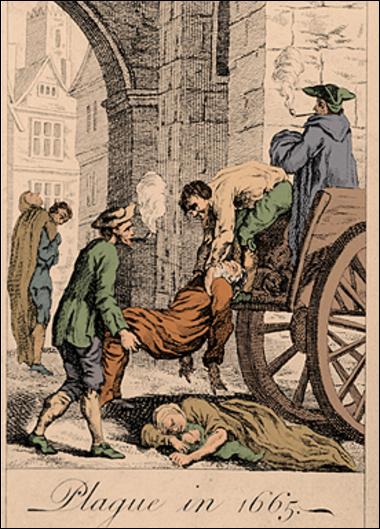Rhyme or Reason?
Responses to the Pandemic
Daniel Defoe's classic novel "Journal of the Plague Year" based on the experience of London in 1665 details the understandable but often irrational behavior of both leaders and citizens coming to terms with the deadly epidemic sweeping the City during that year in which London lost between 14 and 21 percent of its population.
First came the very human response of denial: surely this will pass swiftly; perhaps it is limited to very few people or certain regions of the city; perhaps it can be contained; perhaps when the weather warms it will magically vanish; perhaps prayer will help.
Then distortion of the data soon followed to support these theories. As bodies piled up or were carted away, records were altered to attribute the deaths to other, more usual, acceptable, or even invented causes. Naturally, those responsible for affected districts sought to avoid the blame or opprobrium of being associated with the disease, and thus reported these false accounts to their superiors.
As in every case we know of from ancient Rome, to Europe in the Middle Ages, to modern-day China, actual facts about a growing epidemic, no matter how tightly controlled by the authorities, will be leaked to the general public, with predictable responses. Spreading like wildfire, often blowing limited or incomplete bits of information completely out of context, rumors themselves contribute to the impact of the contagion.
One all-too-human tendency inevitably leads down the path of stigmatizing easy-to-identify 'others' as the source. Another is the search for quick cures: rituals, signs or amulets to ward off the illness; or in other cases the promotion of folk-medicines or sometimes dangerous potions claimed by others to heal the sick.
From the perspective of authorities anxious to avoid challenges to their power, the next step is often to portray the disease and disaster as emanating from foreign sources, both external and internal. During the Antonine smallpox plague in ancient Rome, Christians were portrayed as the disease's source since they refused to serve the Roman Gods. During the Middle Ages in Europe, popular fear and anger during the scourge of the Black Death was directed against the Jews who were charged with and often murdered for poisoning the wells regardless of the fact that they drank the same water and often suffered from the same diseases.
If all this sounds familiar in the age of Covid-19, it should. But in this twenty-first century, we all should know better. Plagues and pandemics, despite President Trump's declarations, do not "magically go away by April;" nor are they "hoaxes" concocted by political enemies; or malicious evils carried by immigrants or sent by rival powers; nor can they be cured by untested potions, wishes or by "injecting disinfectants."
"History does not repeat itself, But it does rhyme," Mark Twain is alleged to have said.
In an age defined by science and deep medical knowledge, not myth, mystery and ignorance, isn't it time for us to finally bring the rhyme scheme up to date? A few nations, including Australia, New Zealand and South Korea are applying science and expertise to defeat our current plague. Can we do the same?





